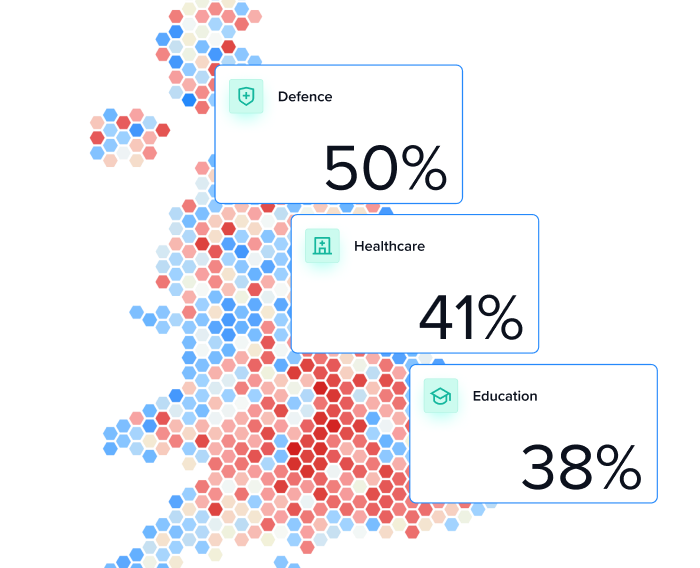Blog/Research
Landmark survey reveals strong but fragile global support for cooperation 🌍
September 18, 2025
The Rockefeller Foundation, in partnership with Focaldata, has today published Demanding Results: Global Views on International Cooperation – a landmark survey of 36,405 people across 34 countries. The findings show broad public appetite for nations to work together, but also a clear mandate: cooperation must deliver real results that improve lives at home.
What the data shows
- Widespread agreement: 55% of people worldwide believe their country should cooperate on global challenges even if it means compromising on national interests.
- Tangible outcomes matter: Support jumps to 75% if cooperation is proven to solve global problems, and 76% if it solves problems in respondents’ own country.
- Personal stakes: Over half (54%) say their lives are already affected by events abroad – yet only 42% see global cooperation as in their personal interest.
- High importance, mixed trust: People see cooperation as essential for food and water security, jobs, health, trade, and climate. But trust in international institutions is uneven – stronger for the UN (58%) and WHO (60%), weaker for the IMF, WTO, and World Bank (≈44–50%).
What it means & what’s next
The results highlight a paradox: people back cooperation, but support is fragile. Without clear benefits for households and communities, public trust will weaken.
To meet this demand, The Rockefeller Foundation has launched a US$50 million initiative, “Build the Shared Future”, to reimagine how nations cooperate on health, food systems, and global frameworks.
Why you should read the report
- It’s one of the largest-ever global surveys of public attitudes to cooperation, delivered by Focaldata’s AI-powered research platform.
- It shows where cooperation is most trusted — and where institutions must prove their worth.
- It sets a new benchmark: cooperation isn’t enough. It has to deliver.

Read report: Demanding Results: Global Views on International Cooperation
More info: Rockefeller Foundation’s New U.S. $50 Million Initiative
Data tables and methodology
- Data tables are available here.
- Focaldata conducted nationally representative polls in 34 countries, capturing responses from 36,405 quantitative respondents. These were carried out from August 8 to September 10 2025, with broad geographic coverage. The survey reached representative cohorts based on age, gender, region, education, ethnicity, and most recent political vote to achieve nationally representative samples in each country, with ethnicity and past political votes used applied only where such measures are collected and standard practice. The sample was then weighted to be representative at a minimum by age and gender, with additional weights applied, as appropriate in each country, for region, education, ethnicity, and/or most recent political vote.


